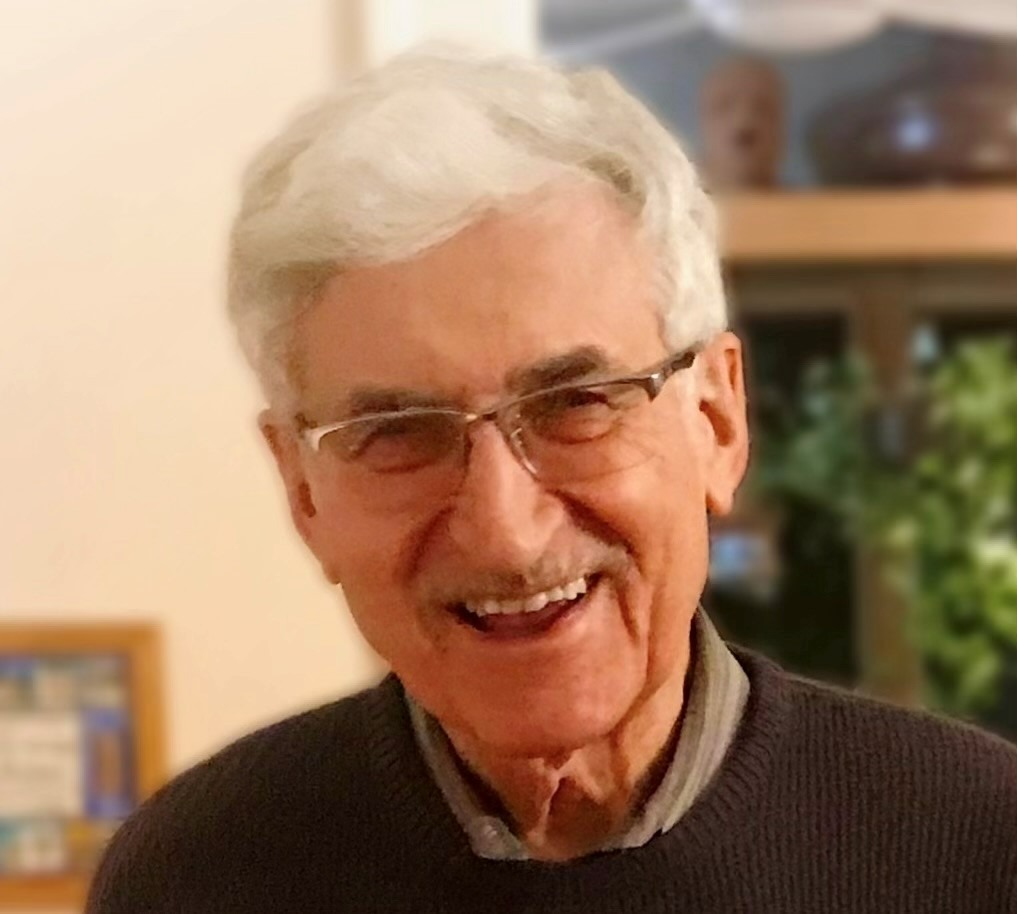
Ralph Austen
January 9, 1937 - August 23, 2024
Date and Time
Wednesday, August 28, 2024 at 10:00 AM
Service
KAM Isaiah Israel Congregation
1100 East Hyde Park Blvd.
Chicago, Illinois 60615
Get Directions
Clergy
Rabbi Daniel Kirzane
Cantor David Berger
KAM Isaiah Israel Congregation
Interment
Oak Woods Cemetery
1035 East 67th Street
Chicago, Illinois 60637
Get Directions
Shiva
Ernestine Austen Residence
5000 South East End Avenue, Unit 22C
Chicago, Illinois 60615
Get Directions
Wednesday 5PM - 8PM
Ben & Danielle Austen Residence
1342 East Madison Park
Chicago, Illinois 60615
Thursday 6PM - 8PM
Memorial Contributions
KAM Isaiah Israel Congregation
1100 East Hyde Park Boulevard
Chicago, Illinois 60615
www.kamii.org
or
Hyde Park Refugee Program
5500 South Woodlawn
Chicago, Illinois 60637
www.hprpchicago.org
OBITUARY
Ralph Albert Austen was born on January 9, 1937, in Leipzig, Germany. His father, Norbert Hans Oesterreicher—who would change their last name to Austen in the United States—had already secured visas for the family to flee the country when he was arrested and detained by the Nazis; he’d later say officers released him because they thought him too tall to be a Jew. Ralph left Germany as a two-year-old, lived for a year in Sweden, and made it to New York in 1940. His mother, Sulamith (Neumann), spoke to him there only in German at first, despite knowing English, for fear she’d pass along her thick accent. His father started a business in New York—Austen Display—which made window decorations for storefronts. They moved from Flushing, Queens–where Ralph’s sister Judith was born–to Great Neck, Long Island. “My family and I were evacuated and forced to leave Europe because of our religion,” Ralph wrote at ten for an essay contest titled “Why I am thankful to be an American.” “I have no fear of this here.”
Ralph was an extraordinary student with wide-ranging interests and a near-photographic memory. In his eighties, he could still recite the poems he learned in middle school, summon up countless old jokes and explain the political history of any country or region. As a teenager, he traversed the boroughs to get baseball cards signed by his favorite Yankees and even worked his way across the Atlantic on a freighter. When Ralph was accepted to Harvard, he earned his entire freshman-year tuition over a summer by bussing tables in the Catskills, the Jewish resort towns of the Hudson Valley known as the Borscht Belt—he called the less fashionable area where he got a job the “Sauerkraut Belt.” After Harvard, Ralph earned an M.A. from the University of California, Berkeley, and then a Ph.D. back at Harvard. A professor there told him that too much of the world still failed to recognize Africa as part of world history–correcting that error became Ralph’s life work.
Ralph wrote his first book in 1969, a colonial history of Tanzania, and over the next six decades he wrote, co-authored or edited seven other books and published more than 100 scholarly articles and papers. He wrote a foundational book on Africa’s economic history, and did pathbreaking work on the much less-well studied trafficking of African people across the Saharan Desert. He was a voracious scholar, compulsive in his intellectual interests, and he understood that Africa was far more than its legacy of slavery and colonialism. He drew connections between commerce and literature, between different cultures and continents and religions. He studied and taught African oral epics, coming-of-age memoirs and trickster tales.
When Ralph joined the history department of the University of Chicago in 1967, he brought with him a rigorous academic exploration of the African continent. He was a founding member there of the African Studies Workshop, a regular gathering where early graduate students and eminent scholars come together to hash out scholarly debates and share their research and works in progress. He was, in his own words, never much of an administrator, but he was proud that he and a colleague helped rescue the university’s now very robust M.A. Program in the Social Sciences (MAPSS), when it was in risk of being eliminated in the 1980s. He traveled to the university every day by bicycle, a couple-mile ride, even through Chicago’s winters. He valued his colleagues and students, and spent nearly every night in his home study researching, writing and honing lectures (and puns) for classes.
In 1966, when Ralph was an assistant history professor at New York University, he was introduced at a party to Ernestine Stotter, who was then working in book publishing and living with her brother in Harlem. He asked her out, taking her on their first date to a five-hour opera. And yet, twelve months later, they were married, an incredible bond that lasted fifty-six years. Both of them educators, they shared loves of history, travel, literature, theater, sports. Together, they rarely missed a White Sox game on TV or the radio. They had two sons, Jacob and Ben, who were both shaped by Ralph’s passion for writing and research, his honesty, integrity and playful imagination. Ralph and Ernestine lived in South Shore’s Jackson Park Highlands neighborhood for fifty years and were active members of the community. Each Friday for Shabbat, they hosted their beloved grandchildren: Maiya, Lusia, Noble and Jonah. Ralph had a close, unique relationship with each of them.
Ralph spoke German, French, Spanish, Douala, Swahili, Hebrew and some Yiddish—and really he could somehow puzzle out most languages during a visit. He joined the University of Chicago Hillel and later Hyde Park’s KAM Isaiah Israel. At eighty-three, he had a second bar mitzvah—he hadn’t found the first one at thirteen meaningful. He volunteered at KAM, bringing in guest speakers, and at the Hyde Park Refugee Project. He stayed connected to his relatives on a weekly Zoom call—many of them “cousins” because their Jewish families emerged from the same small town, Tachau, in what’s now the Czech Republic.
He is survived by his wife of fifty-six years, Ernestine; his sons, Jacob and Ben; his daughters-in-law, Jacqueline Stewart and Danielle Austen; his grandchildren Maiya, Lusia, Noble and Jonah; and his sister Judith. May his memory be a blessing.
